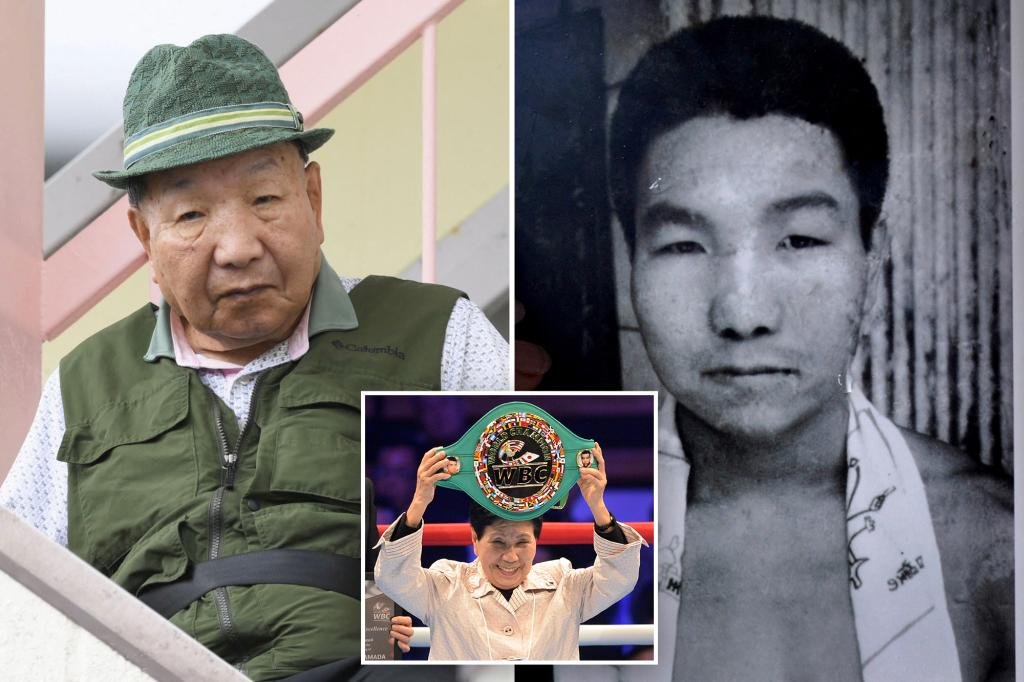A Japanese court ruled Thursday that an 88-year-old former boxer was not guilty in a retrial for a 1966 quadruple murder, overturning an earlier wrongful conviction after decades on death row.
Iwao Hakamada’s acquittal by the Shizuoka District Court makes him the fifth death row convict to be found not guilty in a retrial in post-war Japanese criminal law.
The case could reignite a debate over the abolition of the death penalty in Japan.
The presiding judge, Koshi Kunii, said the court admitted several fabrications of evidence and that Hakamada was not to blame, NHK said.
Hakamada was convicted of murder in the 1966 killing of a company manager and three of his relatives and the burning of their home in central Japan.
He was sentenced to death in 1968, but was not executed due to lengthy appeals and the retrial.
He spent 48 years behind bars – most of that on death row – making him the world’s longest-serving prisoner in the world.
It took 27 years for the highest court to deny his first request for a new trial.
His second appeal for a retrial was filed in 2008 by his sister Hideko Hakamada, now 91, and the court finally ruled in his favor in 2023, paving the way for the latest retrial that began in October.
Hakamada was released from prison in 2014 when a court ordered a new trial based on new evidence suggesting his conviction may have been based on trumped-up charges by investigators, but he was not acquitted of the conviction.
After his release, Hakamada served his sentence at home because his poor health and age made him little risk of escape.
At a final hearing at the Shizuoka District Court in May before Thursday’s decision, prosecutors again sought the death penalty, prompting criticism from rights groups that prosecutors were trying to prolong the trial.
The extremely high barriers to new trials have also prompted legal experts to call for an overhaul of the system.
During the investigation that followed his arrest, Hakamada initially denied the charges but subsequently confessed. He later said he was coerced into confessing under violent police interrogation.
A major point of contention involved five blood-stained garments that investigators say Hakamada wore during the crime and hid in a tank of fermented soybean paste, or miso.
The clothing was found more than a year after his arrest.
A 2023 Tokyo High Court ruling recognized scientific experiments in which clothing soaked in miso for more than a year becomes too dark to see bloodstains, with a possible fabrication noted by researchers.
Defense attorneys and previous decisions on the retrial said the blood samples did not match Hakamada’s DNA, and that the pants prosecutors submitted as evidence were too small for Hakamada and did not fit when he tried them on.
Japan and the United States are the only two countries in the Group of Seven advanced countries that maintain the death penalty.
A Japanese government survey found that an overwhelming majority supported public executions.
Executions are carried out in secret in Japan and prisoners are not informed of their fate until the morning of their hanging.
In 2007, Japan began making public the names of those executed and some details of their crimes, but revelations are still limited.
Advocates say Hakamada’s nearly half-century incarceration has taken a toll on his mental health. He spent most of his time behind bars in solitary confinement, fearing execution. He spent a total of 48 years in prison, including more than 45 years on death row.
His sister Hideko Hakamada has dedicated about half of her life to winning his innocence. Before Thursday’s ruling, she said she was engaged in an endless battle.
“It is so difficult to get a new process going,” she told reporters in Tokyo. “Not only Iwao, but I’m sure there are other people who have been wrongly accused and are crying. … I want criminal law to be revised so that new trials can be made easier.”













Leave a Reply